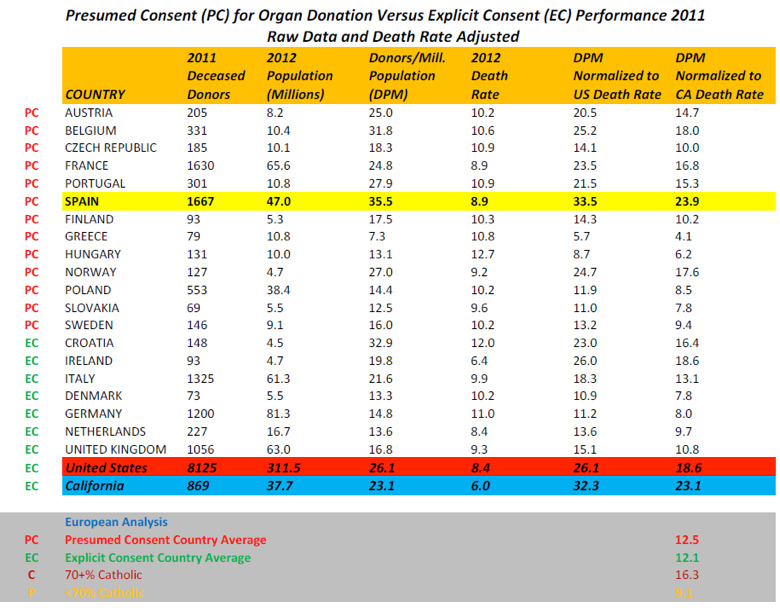Jay Lavee, the Israeli transplant surgeon behind some of Israel's new legislation (and who I met in person for the first time at Duke), recently returned from Taiwan, and forwarded these links:
The first is to
this story in the Tapei Times:
"Two issues surrounding organ transplants in Taiwan were spotlighted by foreign experts and Taiwanese legislators: using executed prisoners as organ donors and post-transplant medication insured by the NHI.
Jacob Lavee, director of the heart transplant unit at Israel’s Sheba Medical Center, said he used to hold up Taiwan on various occasions as a prominent example of a nation that had stopped taking organs from executed prisoners, who are considered unwilling donors, until he regretfully discovered Taiwan had resumed using such organs two years ago.
"The Department of Health’s Bureau of Planning head Shih Chung-yuan (石崇原) said in response that “although there is no law banning the use of organs taken from executed prisoners, the government does not encourage it and has stopped soliciting organ donations in the prison.”
"Concerning the current lawless state of organ transplants performed abroad, Shih said that in 2009, an amendment to the Organ Transplant Act (人體器官移植條例) was proposed that would require all organ recipients, in Taiwan or abroad, to register with local authorities, but it was not passed.
Tien also called for stricter regulation for organ transplants performed abroad, saying that since the majority (88.6 percent) of Taiwanese organ recipients went to China for organ transplants that are often from questionable and unethical organ sources, but continue to be insured by the NHI for post-transplant medication, “it almost seems like all Taiwanese who contribute to the NHI are complicit with the illegal and unethical organ-harvesting crimes perpetrated in China.”
***********
Here's a related story from NTD news:
Taiwan's Health Department Wants to Criminalize Organ Trade
Taiwan’s health department said on Thursday it plans to modify its organ transplant laws to criminalize organ trade and brokerage.
The main concern is illegally obtained organs in China, where authorities have been accused of killing prisoners of conscience for their organs. China is the main destination for Taiwanese patients who obtain organs overseas.
[Hsu Ming-neng, Director, Bureau of Medical Affairs, Department of Health]:
“We want to minimize the occurrence of using organs with questionable sources. We plan to discuss the amendment of organ transplant laws [during the upcoming legislative period] and we want everyone’s support.”
Hsu Ming-neng spoke during a forum in Taipei on Thursday organized by the Department of Health. On the panel was a group of five doctors and investigators from around the world. They visited Taiwan this week to highlight transplant abuse in China.
Dr Jacob Lavee from Israel discovered his patients were going to China for rapid transplants. Some were promised an organ on a certain day—something that suggests China has an “on-demand” organ supply.
He has since worked to get Israel to stop transplant tourism to China.
[Jacob Lavee, MD, Advisor, Doctors Against Forced Organ Harvesting]:
“Those brokers who intermediate between local candidates and overseas [donors in China], that should be taken care of. That’s what we’ve done in Israel and that’s the way we’ve succeeded in Israel to stop completely the flow of Israeli patients to China.”
US-based doctor, Jianchao Xu, says a combined effort is necessary to stop forced organ harvesting in China.
[Jianchao Xu, MD, Medical Director, Doctors Against Forced Organ Harvesting]:
“I think the public, medical community, the political field and the legal community all need to take action, because this isn’t something that doctors alone can accomplish.”
Independent investigators and human rights activists have accused the Chinese regime of profiting from forced organ harvesting. The largest groups of victims identified are persecuted Falun Gong practitioners. Detained House Christians and Uyghur minorities are also believed to be amongst those killed for their organs.
NTD News, Taiwan

















